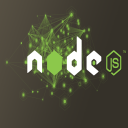
As they say: no skill — no deal! Without proper skills we won’t do too much. Also continuous development of our skills is also important.
It’s not like the old days, when a knowledge of DHTML and PHP was sufficient. Nowadays the developer must know not only various programming languages, but also o lot of tools and frameworks.
Front-end Developer required skills vs the market
Today we will try to look at what is necessary to be a good front-end or full-stack developer. What are the trends, and above all what the market requires (clients, employers).
What are Front-end Developer required skills today? Or full-stack? Industry is growing rapidly in this direction, and many people want to start working as the Front-end Developer, as currently it’s a very hot profession.
The others, people who already are Web Developers (back-end, front-end) are wondering, what other skills should acquire? Today I’d like to write a few words about what I see, based on observations of my colleagues, as well my own.
It’s easier than ever…
… BUT in terms of learning. I remember when he tried to learn something several years ago. Of course not in the school, but from the Internet (which was limited because of high costs), and also from quite expensive books.
In general, it was really hard to find good materials.
Nowadays it is much easier — full access to the Internet AND also the knowledge. Countless tutorials and courses, free books, and help from real geeks on the web (e.g. Stackoverflow). Just a little desire and determination to acquire the necessary skills in a relatively short period of time.
It is also harder than ever … because of strong competition.
The whole Web Development topic is so popular, same as remote working. That’s great, but form the other hand it affects so huge competition. The experts are desired — there are thousands of listings around, but the applicants — potential developers seems to be much more.
OK, let’s go to the skills — languages, tools and solutions.
1. HTML, CSS and JavaScript are very important, however, it is only the foundation. By the way, you would have to be versed in the differences between html5 and xhtml.
Today, most everything is focused on HTML5, but you should know the differences anyway. Especially when you get older project to work with.
2. Selected server-side technology, as usually the front-end developer integrates his work with the website or web application. The LAMP stack and Rails are very popular.
Definitely it is a good idea to dive into node.js — efficient technology, perfectly working on the server side and communicating with the front-end layer. And this can be done through AJAX, or via socket.io (with node and socket we can do the magic).
Node.js is perfect for us also if we love and want to code in JavaScript language. And if node, then also it’s good to know some framework, such as ExpressJS.
3. EN! If we want to do something, the English language is indispensable. Learning how to code will be MUCH easier and better, if we won’t rely only on the materials and books written in our language. Resources from around the world will be reachable.
Writing, reading and speaking, and we can communicate with the clients or co-workers from many different places in the world! I know that in practice (often working remotely in an international team).
Communication is the key! It may be not perfect, but it should work! For example I’m not English native speaker, and surely every native speaker can see and hear that. But the most important is to be able to communicate in this language. Skype, e-mails, or comments in the code for other developers. More languages? Of course! Even my German language basics are useful sometimes.
4. IT foundations, such as algorithms and data structures. Computer science will be useful repeatedly in developing solutions.
5. Version control — the most popular systems like SVN and Git. I work with SVN many years, but I also appreciate the advantages of Git from longer time.
6. “Pure” JavaScript knowledge vs Frameworks
Generally, you need to have mastered both. Really it’s good to now pure JS, to rely not only on the frameworks. We have to understand JavaScript — then our coding is just better. Sometimes we need to operate on lower level of abstraction (solutions not present in framework / library, developing own libraries, working with the old code, etc).
It should not be a problem, in the end we are talking only about JS, not assembler.
I myself appreciate the knowledge of pure JS, which I’ve gained in the past(before frameworks have gained so much popularity).
And about the libraries, the most popular (and my favorite) is jQuery.
Among others, we can mention about Zepto.js (similar to jQ), Prototype JS or Mootools.
jQuery has a great community, and millions of interesting plugins. Some of them (and much more) we describe here.
Regardless of the preferred library, a skill which we definitely need is working with AJAX.
Data exchange format? It can be XML, but in fact JSON is the king.
OK, let’s collect the next Front-end Developer required skills.
7. Twitter Bootstrap it VERY helpful in front-end development, especially responsive (RWD). TB is often required by employers, and above all, really helps us.
And about Responsive Web Design, very useful and important are Media Queries.
8. Angular is a framework from uncle Google, having amazing possibilities.
For a longer time I’m delving into Angular. For me personally, both Angular and node.js are mandatory skills for the future.
Creating single single page apps (one page) is also very important. We can play around this “manually”, but for sure it’s better to use some framework. And here angular really can support us, same as Backbone.js, or Ember.
9. Using tools
Not only IDE and version control or Firebug. A good developer is able to master many tools, also in command line (shell).
For sure stuff like composer or Bower, NPM, or the GruntJS task runner. Those are typical tools, helping the developer, and often required by employers.
On the front also solutions like SASS and LESS will be useful.
It is also important to ensure, that our solutions are cross-browser.
10. What else?
For example React (A JavaScript library for building user interfaces) — a solution from uncle Facebook’a.
When working with the projects and offers from Switzerland, I often see required knowledge of Vue.js library.
Besides, issue tracking solutions, and the others to facilitate cooperation, especially if you love (same as me) remote work. Good examples are Basecamp and Trello. The choice of tools depends on the team.
Testing and performance optimizing skills are also very valuable. Skills from the UI/UX area also.
And one more thing — the quality!
The quality is very important! Our code is our business card — let it looks great and works even better. And stable, so that everyone can sleep peacefully.
A specialization?
Why not — there are people working professionally in WordPress (developing themes and plugins, implementations, technical support).
On the German market there is a very popular CMS — Typo3. There is so many offers from this are, there are Typo3-agencies.
Or maybe coding on-line games?
Besides, well… we cannot know everything, but the more we can, the better! Let’s master few skills on high level, instead of trying to know and do everything. Especially in case of JavaScript, where we have millions of libraries, tools and solutions.
Just keep the passion for learning and continuous development.
Resources:
http://blog.danielna.com/getting-a-job-as-a-front-end-web-developer.html
http://www.sitepoint.com/full-stack-developer
Front-end Developer required skills — summary
That’s it for today, although the topic is much more extensive.
We have reviewed the useful skills, and I have to mention that it was only from my humble point of view, and the people I talk from time to time.
It’s good to know what’s happening and to track of what will be the trends for the future.
And what are your insights? And maybe some predictions for the future?
Thank you for the attention. Let the code be with you!


 Posted in
Posted in  Tags:
Tags: 

HTML, CSS and JavaScript are the core skills you need. Which is why you’ll mostly get tested for those with a coding test like this one. Angular, Bootstrap, jQuery and other libraries and frameworks are very useful of course, but they’re all based on HTML, CSS and JavaScript. It’s more important to know the underlying technologies.
BTW — a nice intro article about Full-stack JavaScript https://www.smashingmagazine.com/2013/11/introduction-to-full-stack-javascript